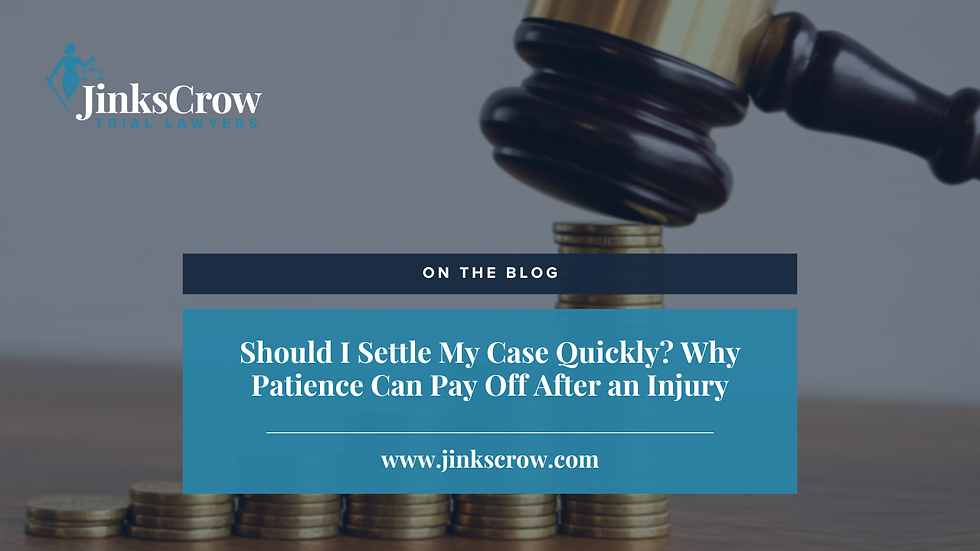Safe Summer Driving Tips
- Jinks Crow

- Apr 27, 2022
- 3 min read

Regardless of the price of gasoline, summer means more cars on the road and more miles traveled, especially this summer. Historically, summer involves kids of driving age out of school, vacations, conferences, outdoor recreation, quick getaways, and family get-togethers. But this summer should be especially busy given what we hope to be the end of a pandemic.
The nation’s highways have seen an uptick in travel with the latest statistics showing travel in 2021 at about the same level that it was in 2019.[1] Commercial travel is likely on the rise as businesses seek to meet the demands of a fully opened economy. Great news, right? But there is a downside to our return to “normal.” An unfortunate occurrence on the roads since COVID-19 is an increase in the number of accidents.[2] What can you do to avoid them?
Here are five safe summer driving tips:
Distracted driving comes in many forms, and all of them can be prevented. Whether distracted on cell phones by texting, dialing, talking (with the phone to their ear rather than handsfree), answering, web surfing or watching videos (yes, people do that while they are driving), cell phones are at the root of many distracted driving accidents.[3] Texting is the most alarming distraction. Sending or reading a text takes your eyes off the road for 5 seconds. At 55 mph, that's like driving the length of an entire football field with your eyes closed. The latest statistics of the National Highway Transportation Safety Administration (NHTSA) reveal that 3,142 people were killed in 2020 in motor vehicle crashes involving distracted drivers. Cell phones are not the only distractors. Distracted driving is any activity that diverts attention from driving, including, eating and drinking, talking to people in your vehicle, fiddling with the stereo, entertainment, or navigation system — anything that takes your attention away from the task of safe driving.
2. Plan ahead.
A lot of deadly accidents can be avoided by planning ahead. Anticipate stops and turns. Be prepared for your next exit. Make sure that you have plenty of fuel to reach your destination. Driving on our highways is dangerous enough but sitting in a stalled or parked car next to a busy highway is even more deadly. Prepare your on-the-road meal and enjoy it before you set off down the road. Not everything sold at a drive-through window can easily be consumed while driving. Open your refreshments before you take off, not while you are trying to drive. Leave your drink uncapped so that you don’t have to attempt uncapping it while driving.
3. Drive defensively.
You may be very conscientious about your driving, but you must worry about the next guy. While you avoid driving distracted, he or she may not be. Notice how many people are disengaged as you pass them, or they pass you. Anticipate that speedy driver darting in and out of traffic. Give them plenty of room. Make sure you aren’t following too closely, and if someone is on your bumper, slow down so that they can pass or move out of their way. Pay attention to what is going on around you and potentially heading for you. Avoiding collisions caused by others is something over which you have some control.
4. Do routine maintenance.
Don’t let ineffective wipers cause a distraction or a lack of clear vision for you. Summer is full of pop-up showers, thunderstorms, and torrential downpours. Be ready. Most auto supply stores will even put them on your car at no charge. Inspect your tires. Having a blowout will land you in that dangerous area next to that busy highway – not where you want to be. Don’t let a faulty air conditioner leave you suffering in our unrelenting heat. Have your system inspected before setting out on that road trip.
5. Don’t drink and drive.
While it shouldn’t have to be said, given a large number of deadly drinking and driving accidents, it’s worth repeating. Don’t drink and drive. Just don’t. There is no safe way to do it.
%20Proof%20%235.png)



Comments